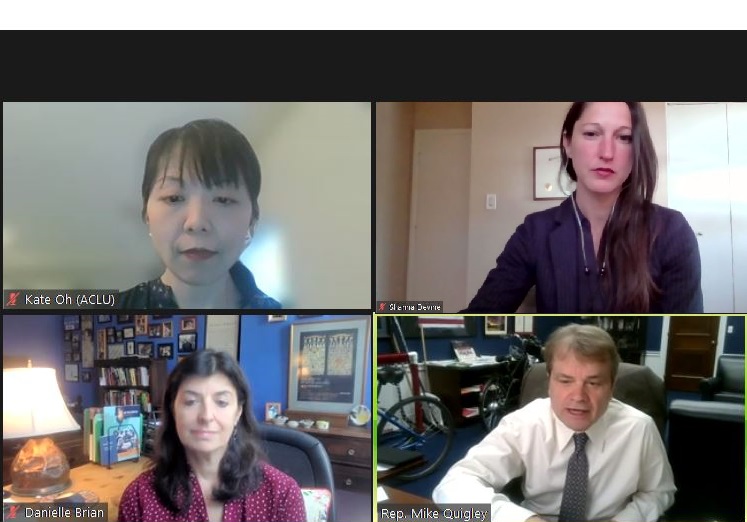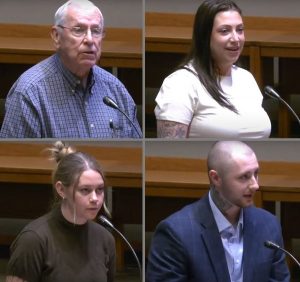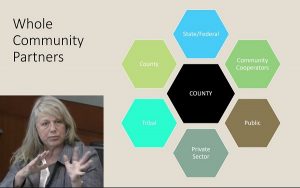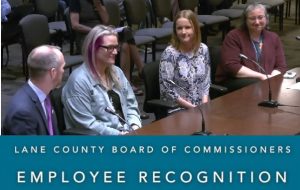Sunshine Week in a dark time for democracy
6 min read
Rep. Mike Quigley, Shanna Devine, Kate Oh, and Danielle Brian marked Sunshine Week during a dark time.
Whistleblowers were first protected by the Continental Congress during the Revolutionary War. Speaking on a Sunshine Week panel convened by Demand Progress, the director of the House Ombuds Office, Shanna Devine.
[00:00:12] Shanna Devine: When it comes to the public’s right to know, I couldn’t think of a more timely topic to be covering than the role of whistleblowers.
[00:00:19] I mean, these individuals serve as Congress’s and therefore the public’s eyes and ears to learn about abuses of power that betray the public trust, right? So whether it’s protecting taxpayers in the context of COVID spending, or holding Big Brother accountable for illegal surveillance, throughout history Congress has partnered with whistleblowers in a bipartisan capacity to have an impact and to hold wrongdoers accountable.
[00:00:46] This support does go back to the Revolutionary War. This was a time when there were about 10 officers who had disclosed fraud by their commanding officer. And the Continental Congress at that time, actually acted unanimously to protect these officers through the U.S.’s first whistleblower law. This act ultimately foreshadowed congressional support in the centuries to come. And now we celebrate that date of July 30th, National Whistleblower Appreciation Day, in recognition of that first whistleblower law.
[00:01:16] Now I do just want to acknowledge that nearly all whistleblower laws have passed with often strong bipartisan and very often unanimous support, which is, it’s just something to pause and acknowledge and just let permeate.
[00:01:31] But I also want to acknowledge that it takes a lot more than symbolic recognition to encourage and protect whistleblowing…. This community probably knows intimately that retaliation is limited only by the imagination… Most U.S. statutes don’t cover forms of criminal or even civil retaliation, even when an individual is acting lawfully, even when they haven’t violated the law, they can still be subjected to these forms of retaliation and there is always a risk. And then coming forward, you know, it takes an incredible amount of courage.
[00:02:03] That said, interestingly enough, amazingly enough, research has found that the primary reason potential whistleblowers ultimately don’t come forward is not that fear of retaliation. It’s not the fear of the risk. It’s a fear of futility, right? A fear that their disclosures won’t have an impact and won’t make a difference. They won’t result in meaningful change and therefore they’re not worth the risk.
[00:02:29] John Q: Senior Policy Counsel for the American Civil Liberties Union, Kate Oh.
[00:02:34] Kate Oh: (quoting Rep. Mike Quigley) ‘Transparency should not be just an afterthought. It should be a government-wide mindset, if you will.’
[00:02:41] …So one, it is imperative to recognize where we are in this moment in American history. I mean, the reality is that our own democracy is under increasing assault from, for instance, politicians who want to brutally crack down on protest rights. America is far from alone here. Democracies around the world are under similar assaults. And if you study the individual incidents that illustrate this profoundly disturbing trend, you will see tussles between the government trying to hide information that should be public, often under the guise of protecting national security, and journalists, activists, and other members of the public trying to pry that information loose.
[00:03:22] So my second takeaway is that this state of affairs creates a responsibility for all of us and our leaders, especially, to make sure that we do not take for granted the right of the people to know what our government is doing and why.
[00:03:39] And that Right To Know goes to the heart of how a democracy should work. Because again, in a democracy, our elected leaders are supposed to ultimately answer to the people, and not vice versa. I mean, we can’t hold anyone accountable if we don’t know what’s going on. And so I worry this is easily overlooked. I would just ask all of us to keep that in mind.
[00:04:01] My third and final takeaway is that FOIA is one of the most important pillars of our democracy, but it also has some serious shortcomings. For one thing, FOIA relies heavily on ad hoc individual requests from outside government to fight for what should be the public domain and the government all too often prevails in keeping something secret. And that’s true, even for government records like the government’s interpretations of what the law is, even though secret laws have no place in a democracy. FOIA also applies only to the legislative branch, which is one of the reasons why the infamous Senate Torture Report still has not been fully declassified and released.
[00:04:45] So we still have all sorts of examples showing the federal government’s tendency towards secrecy, especially in national security matters. And the basic point we should all take away from today’s discussions is that implementation of our transparency laws enables excessive secrecy, which in turn allows abuses of power to proliferate and hinder some people’s ability to engage in meaningful oversight of our own government, and that makes excessive secrecy bad for our democracy.
[00:05:17] John Q: Executive Director at Project On Government Oversight, Danielle Brian.
[00:05:21] Danielle Brian: It has been worrying to me that people have thought about openness and transparency as being sort of but not essential and we’re taken for granted. And as we’re looking around the world and what’s happening in the growing authoritarianism and closed societies, it’s really important to me that we put in context that transparency is essential to healthy democracy. And it’s the fuel for checks and balances. And it’s also the scourge of corruption and autocracy. And so I think it’s important for us to realize that we’re not just talking about the operations within our government, but our place in the world.
[00:05:56] And you know, we’re seeing on a daily basis, people are cheering on as we’re capturing Russian kleptocrats’ yachts. And the reality is that Russian kleptocrats have been able to hide their money that they’ve stolen from their country in the United States, in private investment firms and real estate benefiting from loopholes in our law—secrecy loopholes that allow for anonymous shell corporations.
[00:06:19] And the FBI reported this last year that because of those loopholes and the Bank Secrecy Act, criminals from around the world are taking advantage in the United States. So we’re seizing their yachts, but the real money is remaining safely hidden in the United States. Through closing loopholes and knowing who the people are, who are benefiting from owning these assets, our law enforcement can better target the criminals who are profiting from corruption, not just in Russia, but in Venezuela, and criminals across the globe.
[00:06:49] So in addition to fighting corruption and wrongdoing around the world through transparency of information and data, it’s also the fuel for checks and balances here at home. And I think three pillars of checks and balances that are often taken for granted or sort of overlooked are congressional oversight, inspectors general, and whistleblowers. And each of those pillars still suffer from either inadequate information or from inadequate protections for revealing information about corruption or wrongdoing. IGs and whistleblowers are still not adequately protected when they have important information to be made public and revealed… I continue to be very worried about inadequate protections for military and intelligence community whistle blowers.
[00:07:34] But transparency without accountability is meaningless… We tracked, for example, all of the COVID relief spending and the bottom line was that the government was not even collecting enough information to know whether jobs were created or not. I mean, there’s basic data that the government is still not requiring to be collected and it really should be.
[00:07:55] And my final thought is: …I would like us to go to a new place where we’re focusing on proactive disclosure, where FOIA is a backstop, but that if information created by, especially the executive branch, would be released through FOIA, it should just be proactively released, should be created in a format so it’s automatically released, so we don’t have to wait for people to even know enough to ask for the information.
[00:08:21] John Q: In a dark time with our democracy under threat, a Sunshine Week call to return to our revolutionary roots: Strengthen protection for Congressional oversight, Inspectors General, and whistleblowers.
See the full two-hour Sunshine Week event here: https://www.youtube.com/watch?v=CFDnvTU7PfA



